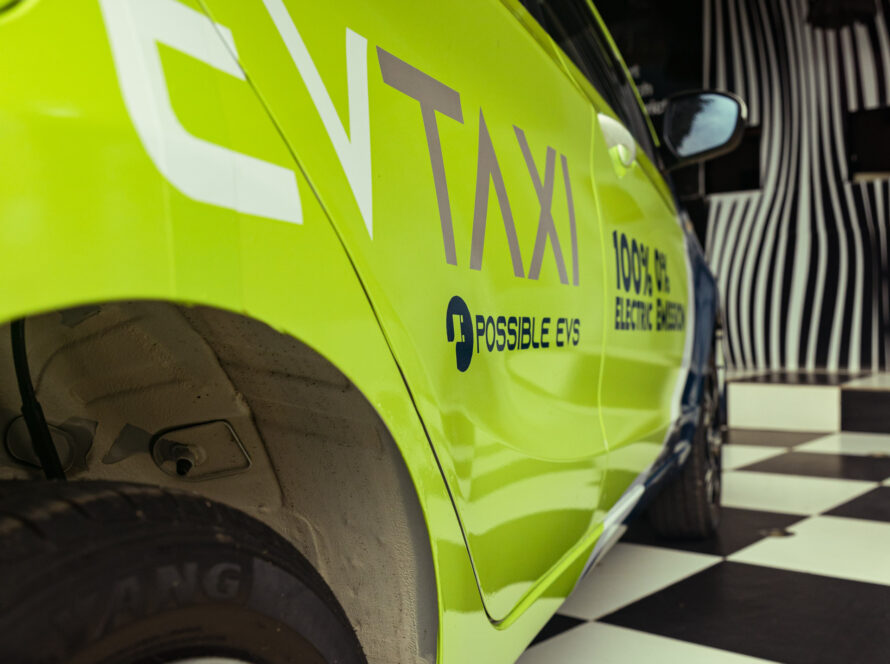The need for sustainable transportation solutions has never been greater. Currently, our cities are heavily reliant on petrol buses, cars, tricycles, and motorcycles, all of which are contributing to growing pollution, traffic congestion, and fuel dependency. Clean electric public transportation offers a promising alternative that could revolutionize mobility in Nigeria.
Like many other countries, Nigeria is witnessing the negative effects of the traditional petrol-powered public transit. Our reliance on petrol and diesel engines continues to contribute to poor air quality, environmental degradation, and even economic hardship. Transportation costs keep going up. And according to the World Bank, 94% of Nigeria’s population is exposed to air pollution levels that exceed safe guidelines, with transportation being a significant contributor. The emissions from public buses, minibuses (a.k.a. danfos), and okadas (motorcycle taxis) further worsen health conditions.
Beyond air quality, these emissions contribute to global warming. The current transportation system plays a key role in our overall carbon footprint, a major concern as our country seeks to meet its climate commitments under the Paris Accord.
Electric public transportation offers a cleaner, greener, cheaper, and more sustainable alternative that can greatly improve our environment and the quality of the air we breathe, and also reduce transport cost for ordinary Nigerians.
But the benefits go beyond the environment. Electric vehicles are more efficient in energy use. But the benefits go beyond the environment. Electric vehicles are far more energy-efficient than petrol-powered vehicles. Given our recurring fuel crises and rising costs, the transition to electric public transport could reduce our dependence on imported fuel. This shift would not only stabilize urban transportation costs but also provide more reliable services, as EVs require less maintenance and experience fewer mechanical breakdowns.
Economic Benefits of Electrification
While the upfront investment for electric buses and the associated infrastructure may appear steep, the long-term savings far outweigh the initial costs. Electric vehicles have fewer moving parts, which means lower maintenance costs. They are also cheaper to run since electricity is more affordable than diesel or petrol, especially as Nigeria moves toward more sustainable energy generation. For transport operators, this means lower operational expenses and higher profitability in the long run. For commuters, this means cheaper transport cost and better travel experience.
Further, the shift to electric public transport could create a wide array of new jobs. From the assembly of electric vehicles to the installation and maintenance of charging stations, a new green economy could emerge to support this transformation. The government has already expressed interest in promoting local manufacturing and assembly of EVs, a move that could generate thousands of jobs and foster technological advancement within the country.
Addressing the Challenges
But what about the challenges?
Of course, the transition to electric public transportation is not without its challenges. One of the primary hurdles is the lack of infrastructure, particularly public charging stations. For electric buses and other public vehicles to operate efficiently, we need to build an extensive network of charging stations across cities and villages and along major routes. Without this infrastructure, range anxiety—where drivers fear running out of charge mid-route—could slow adoption.
At Possible EVS, we’re tackling this issue head-on by steadily developing charging infrastructure in key locations, including public buildings and commercial areas. Our deployment of 100 electric buses in Abuja by the end of December is part of this larger strategy to build the foundation for a fully electrified public transport system.
Another challenge is the initial cost. Electric buses are typically more expensive than traditional petrol buses. However, with proper planning and strategic investments, these costs can be offset by the savings in fuel and maintenance over time. Government support through subsidies and public-private partnerships will also be crucial in making electric public transportation a reality.
Nigeria’s transportation sector is ripe for transformation, and electric public transportation is a key step in moving the country toward a sustainable future. Possible EVS is committed to driving this change by promoting the adoption of electric vehicles and advocating for policies that support the electrification of public transport. Let us invest in clean, efficient public transportation systems. Let us move Nigeria forward with clean electric public transport.


